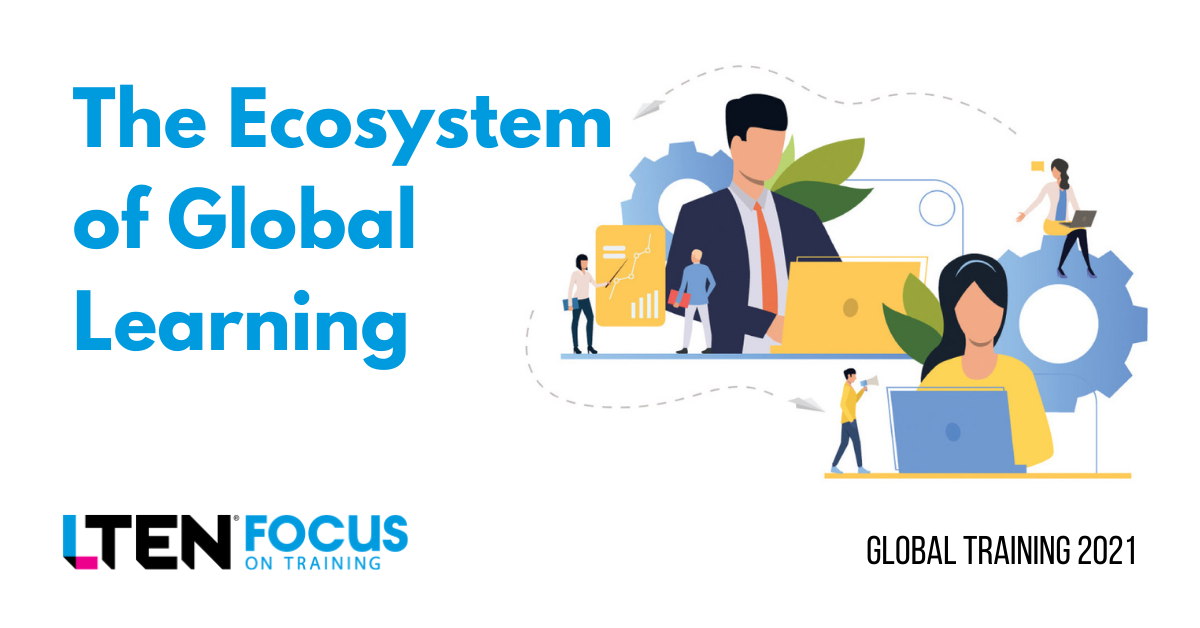
The Ecosystem of Global Learning
GUEST EDITOR – Krishna C. Kalva
The initial vision of a global learning ecosystem needs adaptation.
 The old proverb says, “Rome was not built in a day,” suggesting that complex tasks and great achievements usually take time and effort.
The old proverb says, “Rome was not built in a day,” suggesting that complex tasks and great achievements usually take time and effort.
On that note, a global learning ecosystem consists of processes, technologies, methodologies and resources built over time with considerable efforts. In the end, the ecosystems support learning & development (L&D) organizations to offer a valuable learner experience.
We should always consider that the experience and value referenced here can be associated to human emotions — the determination of “perceived value” is indeed a perception, an understanding of an emotion. We want our learners to have a joyful experience and accumulate positive memorable experiences when they engage with different elements of the ecosystem.
Adapting the Vision
As organizations grow globally, the initial vision of a global learning ecosystem needs adaptation to remain relevant and impactful. Business trends and factors like decentralization aimed at operational effectiveness add to the complexities. There is a growing ask for organizations to rethink and sharpen their strategies, to transform and sustain engaging learner experiences.
So, how do global organizations succeed in a journey of transformation?
In current times, content is available to learners via multiple channels. With the growing tech stack (Teams, Stream, SharePoint, learning management systems, etc.) in global organizations, there are multiple avenues offered to learners.
While these technologies have a clear purpose on what they offer, the experience to navigate and find what one is looking for via these channels seems disintegrated to the point of being a complication. Created content might need to be stored across multiple channels for a better reach, consequently increasing duplication and administrative efforts to maintain.
With the emergence of new technologies, there are opportunities to source advanced functionalities or experiences that existing technologies may not offer. As the number of learning assets increase in the global ecosystem, there is an increased effort and cost to maintain and administer them to retain value and relevance. Global organizations facing these experiential challenges would readily agree with the complexities involved.
Learner Experiences
With the emergence of learner experience platforms, or LXPs, there is a greater focus on optimizing global learning ecosystems. The role of L&D teams is highly relevant in driving this experience enhancement.
Optimization is achieved by following multiple steps in discovering the number of assets, their usage and interfaces with other systems. One of the key outcomes of this exercise is to create transparency for the organization and generate insights that drive decision-making.
The evolution and expectations of learning drives a need for organizations to review and reflect upon their current global learning ecosystems and identify opportunities to drive efficiencies. This might include deconstruction of certain elements, like processes and tools, that no longer bring value to the organization and the learner.
L&D teams can play the role of a facilitator in bringing people and insights together and driving toward decision-making. Technology is evolving and inspiring, however it is relevance and business priorities that help organizations to choose the right asset and to manage the expectations for their global ecosystem.
Krishna C. Kalva is learning solution manager at Siemens Healthineers. Email him
at krishnachaitanya.kalva@siemens-healthineers.com.








